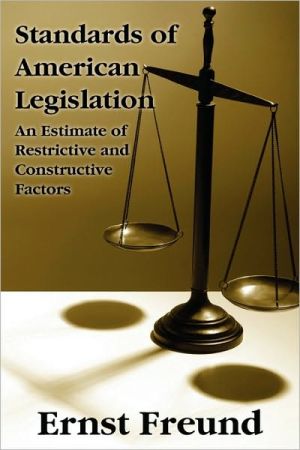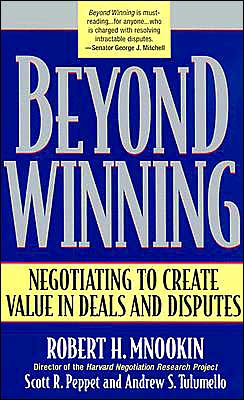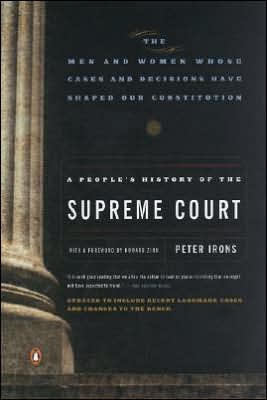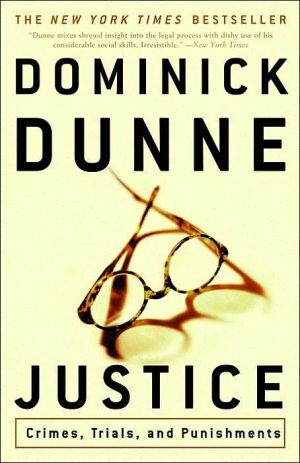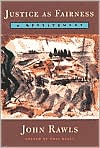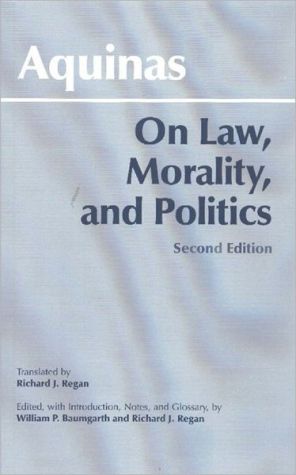Standards Of American Legislation
This book originated as a series of lectures presented at Johns Hopkins in 1915. It proposes a method to supplement the established doctrine of constitutional law, which enforces legislative norms through negation and review, by a system of positive principles that would guide the making of statutes and give more definite meaning and content to the concept of due process. Highly regarded since its original publication in 1917 and the winner of Harvard Law School's Ames Prize in 1919, it went...
Search in google:
This book originated as a series of lectures presented at Johns Hopkins in 1915. It proposes a method to supplement the established doctrine of constitutional law, which enforces legislative norms through negation and review, by a system of positive principles that would guide the making of statutes and give more definite meaning and content to the concept of due process. Highly regarded since its original publication in 1917 and the winner of Harvard Law School's Ames Prize in 1919, it went on to become a standard work. It was recommended, to cite two examples, in Roscoe Pound's Introduction to American Law (1919) and Arthur Vanderbilt's Studying Law (1945). A comment published at the end of Freund's career summarizes a general opinion: "The great quality which Ernst Freund brought to the study of administrative law was his capacity for analysis. He was the Austin of the jurisprudence of administrative law." -W.I.J., Law Quarterly Review 49 (1933): 588."We have seldom read an essay so philosophically and learnedly written and one which at the same time is extremely interesting as well as constructive. Mention is made of practically all our general classes of legislation during 'the last century, and in every instance we are treated with a learned historical review of the subject under consideration."-American Law Review 52 (1918) 476.Ernst Freund [1864-1932] was Professor of Jurisprudence and Public Law at the University of Chicago. He is widely considered to be responsible for the development of administrative law in the United States.
\ Such a survey will therefore form the starting-point in the attempt to differentiate policy and principle in legislation. In order to simplify the task, the reference will be mainly to social policies, which will be traced in common-law doctrines, in the legislation enacted to meet common-law deficiencies, and in constitutional provisions. It will appear that the prevailing concepts of principle are in the mam due to judicial action, and on the basis of both legislative and judicial experience the meaning of principle should be made clear. The result of the examination should enable us to estimate the factors by the aid of which a system of constructive principles of legislation may be built up. chapter{Section 4f CHAPTER I HISTORIC CHANGES OF POLICY AND THE MODERN CONCEPT OF SOCIAL LEGISLATION The main phases of evolution which are summarized in the catalogue of changes which follows are perfectly familiar; they are restated simply in order to bring out pointedly the drift of modern legislative thought and its significance. They arrange themselves naturally under a few principal heads: the recognition of the right of personality; the establishment of freedom of thought; the repression of unthrift and dissipation; the protection of public health and safety; and the relief from social injustice. I. THE RIGHT OF PERSONALITY It is a commonplace of legal history that the importance of status as something differentiated from personality diminishes as we proceed from primitive to modern law. We have almost attained to a wiping out of personal differences in relation to legal rights; but the leveling process is in many respects quite recent, and, so far as it goes, has in the mainbeen fully accomplished only in the course of the nineteenth century. Let us briefl...
